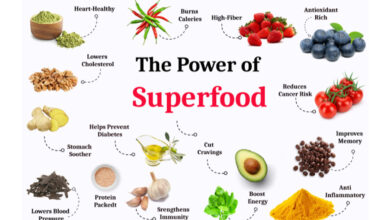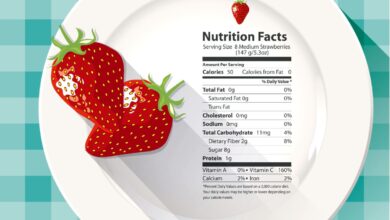
From Plate to PR: The Role of Nutrition in Enhancing Athletic Performance
Introduction
Athletic performance is not solely determined by physical training; nutrition plays a crucial role in providing the fuel and nutrients needed to optimize performance, support recovery, and achieve personal bests. From recreational athletes to elite competitors, understanding the relationship between nutrition and athletic performance is essential for reaching peak levels of fitness and success. In this article, we’ll explore five key aspects of how nutrition influences athletic performance and strategies to enhance it.
Fueling for Performance
The food we eat serves as fuel for our bodies, providing the energy necessary to power through workouts and competitions. Carbohydrates are the primary energy source for high-intensity activities, making them essential for athletes looking to maximize performance. Complex carbohydrates such as whole grains, fruits, and vegetables provide a steady release of energy, while simple carbohydrates like sugars can offer quick energy bursts when needed. Balancing carbohydrate intake with protein and healthy fats ensures sustained energy levels and supports muscle repair and recovery.
Optimizing Macronutrient Ratios
The ideal macronutrient ratio for athletes varies depending on factors such as sport type, training intensity, and individual preferences. Endurance athletes may benefit from a higher carbohydrate intake to fuel prolonged exercise sessions, while strength athletes may prioritize protein to support muscle growth and recovery. Experimenting with different macronutrient ratios and timing strategies can help athletes find what works best for their performance goals. Additionally, timing nutrient intake around workouts—consuming carbohydrates and protein before and after exercise—can optimize fueling and recovery to enhance performance.
Hydration Strategies for Success
Proper hydration is critical for maintaining performance and preventing dehydration-related issues such as fatigue, cramping, and decreased cognitive function. Athletes should aim to stay hydrated throughout the day by drinking water regularly and increasing fluid intake before, during, and after exercise. Monitoring urine color and body weight changes can help athletes gauge hydration status, with pale yellow urine and minimal weight loss indicating adequate fluid intake. In addition to water, electrolyte-rich beverages like sports drinks can be beneficial during prolonged or intense exercise sessions to replace lost fluids and minerals.
Nutrient Timing for Performance and Recovery
Strategic nutrient timing can optimize performance and enhance recovery by providing the body with the right nutrients at the right times. Consuming a balanced meal or snack containing carbohydrates and protein before and after workouts can help fuel performance, promote muscle repair, and replenish glycogen stores. Aim to eat a meal or snack containing carbohydrates and protein within 1-2 hours before exercise and again within 1-2 hours after exercise. Additionally, including sources of antioxidants and anti-inflammatory foods in post-workout meals can help reduce muscle soreness and support overall recovery.
Individualization and Performance Enhancement
While general nutrition principles apply to most athletes, it’s essential to recognize that individual needs and preferences vary. Working with a registered dietitian or sports nutritionist can provide personalized guidance and support tailored to specific performance goals and dietary preferences. By experimenting with different nutrition strategies, monitoring performance and recovery, and making adjustments as needed, athletes can optimize their nutrition to fuel success and achieve peak performance levels in their respective sports.
Conclusion
Nutrition plays a vital role in enhancing athletic performance, from providing fuel for workouts to supporting recovery and optimizing nutrient timing. By prioritizing nutrient-dense foods, staying hydrated, and tailoring macronutrient intake to individual needs, athletes can maximize their potential and achieve their performance goals. Whether aiming to set personal records or compete at the highest level, understanding the role of nutrition in athletic performance is essential for success. With a strategic approach to nutrition, athletes can go from plate to personal records and reach new heights of performance and achievement.
- Baby names starting with A
- Baby names starting with B
- Baby names starting with C
- Baby names starting with D
- Baby names starting with E
- Baby names starting with F
- Baby names starting with G
- Baby names starting with H
- Baby names starting with I
- Baby names starting with J
- Baby names starting with K
- Baby names starting with L
- Baby names starting with M
- Baby names starting with N
- Baby names starting with O
- Baby names starting with P
- Baby names starting with Q
- Baby names starting with R
- Baby names starting with S
- Baby names starting with T
- Baby names starting with U
- Baby names starting with V
- Baby names starting with W
- Baby names starting with X
- Baby names starting with Y
- Baby names starting with Z















